- Home
- P. T. Deutermann
The Cat Dancers cr-1 Page 21
The Cat Dancers cr-1 Read online
Page 21
“The answer to some of your questions, I think,” Marlor said.
“That’s not an answer,” Cam replied.
“That’s your problem, Lieutenant,” Marlor said, looking pointedly at his watch. “Right now, I’m all out of time.”
It was obvious Marlor wasn’t going to tell him any more, and it was equally obvious that Cam had no real leverage on this man. “We going to find you?” Cam asked.
The sky was starting to get seriously dark. Cam could barely see Marlor’s eyes in the shadows of the porch. “I wouldn’t think so,” he said. “But, hell, I’ve been wrong before.”
“Haven’t we all,” Cam replied, standing up and retrieving his pack. The dogs got up immediately and bounded off the porch. “I still feel like I should try to talk you out of this.”
Marlor shook his head. “I want to go find my wife and daughter,” he said. “Have to make the big crossing to do that. If it works, good. If it doesn’t, what’s it matter? Keep this wind to your left as you head back.”
“Any critters I should watch out for?” Cam asked.
Marlor shook his head. “Bears and snakes are all denned up by now. Around here, anything else will be more scared of you than you are of them.”
Cam smiled in the gloom. “Funny how they know, isn’t it,” he said. And then he summoned his dogs and headed for the woods behind the cabin. The first snowflakes began drifting down as he reached the tree line. He looked back, but the cabin was already disappearing in a white curtain, along with James Marlor.
Halfway down the mountain, he heard the boom of a. 45. He stopped for a moment. Nightfall had come early to the cabin.
33
It was 4:30 in the morning when Cam got back to his house. What had been snow in the foothills had been freezing rain down in Triboro, and he’d been lucky to get home, given the mess out on the highways. He turned the dogs loose to run around the backyard and then went into the house. The alarm system was still on, and there were no signs of intrusion that he could see. He checked the Mercedes in the garage, but the small markers he’d left to detect intrusion were all in place. They’d told him to get out of town, so he had. Now that he was back, he wondered how long it would take for someone to know that. He retrieved the dogs and put them in the mudroom to dry off. Then he went into the kitchen and checked the phone. The dial tone was stuttering.
Think, he told himself. If, as a cop, you wanted to know whether or not a subject was at home, you’d have three choices: to go there and see, to maintain constant surveillance, or to tap his home phone. An actual phone tap took a court order, but if all they wanted to know was whether or not the phone was being used, the phone company might be willing to tell them that without the paper work. So don’t use the phone. He used his personal cell phone to retrieve the message. It was from Jaspreet, asking him to call her. He deleted the message, and then he had an idea. He accessed the menu for the mailbox and changed his greeting to indicate that he’d be away for the next month. Callers were invited to leave a message, which he could retrieve from the road.
What else might they check? The mail. He went back out front, holding a newspaper over his head, as the sleet had started up again. The mailbox was fairly full, although in the usual American proportions of one-quarter real mail to threequarters advertising. He sorted through it, returned most of the junk mail to the box, and hurried back into the house. His brain was getting fuzzy with fatigue and he decided to quit for the night. The dogs would tell him if anyone came around the house, and maybe daylight would suggest his next moves. At the very least, he had to tell the sheriff about Marlor. Then he realized he probably shouldn’t do that. Cam didn’t think the sheriff would understand his quasi-complicity in Marlor’s suicide.
At eleven o’clock the next morning, Cam pulled his new truck into the underground parking entrance of Jaspreet Kaur Bawa’s ten-story condominium building near downtown Charlotte. He entered the code she’d given him onto the keypad and the device buzzed, spat out a ticket, and raised the gates. The ticket told him he could park in any space that didn’t have a name and number. He parked, went into the building, found the elevators, and pressed the button for the ninth floor.
The fast elevator popped his ears. When the door opened, he found himself in an ultramodern glass and stainless-steel lobby. The gold lettering on a pair of double glass doors directly in front of him read TIGEREYE ANALYTICS, and a receptionist buzzed him through the glass doors. The doors to the office suites behind her were not glass, and each of them had large keypads in place of door handles, and a glowing redlighted box at eye level on the doorjamb. The receptionist confirmed his identification and then asked him to take a seat next to her desk. She then asked him to put the five fingers of his right hand into a small glove-shaped plastic box. The box beeped and she told him to remove his hand. Then she gave him what looked like a pair of opera glasses that had a wire attached. She asked him to look into them and open his eyes wide. He saw a green pattern materializing in front of his vision, which turned to bright red and then to a comforting golden color. He heard another beep as the retinal scan was recorded. Then she made some entries on her keyboard.
“You going to want some DNA, too?” he asked.
She smiled. “Not today, Lieutenant. Jay-Kay is expecting you upstairs in her living quarters. The stairs are right over there.”
Cam thanked her and headed for the stairs, which were wide and beautifully carpeted. He’d been joking about the DNA. The receptionist had not. At the landing halfway up the stairs, instruments were waiting to sample his fingerprints and retina, and then more doors clicked open. He turned and went up the rest of the way. Jaspreet was waiting for him at the top of the stairs. He was conscious of tiny video cameras tracking his every move as he approached.
Jay-Kay, in a silvery two-piece silk suit whose style was something between Indian and Italian, looked as dazzling as her surroundings. “Good morning, Just Cam,” she said in her delightful singsong voice. “You found it okay?”
“Piece of cake,” he said. He whistled when he took in the view of the city from her living room. It looked like her apartment covered the entire floor. “You own the building?”
“A consortium owns it,” she said. “I lease it. I never own the place where I live. That way, I can walk away at a moment’s notice if it suits me. But I am the only one who works and lives here.”
She took him into the expansive living room and offered coffee. He found the light a bit strong and was thinking about putting his sunglasses back on, when she picked up a remote and changed the tint of the floor-to-ceiling windows.
“How many folks work for you?” he asked, savoring the strong coffee.
“The number varies. I don’t have regular employees except for Sharon, the woman downstairs. I form teams when I need to, because each job requires specific expertise. Most of my employees are computers.”
“And where are the tigers?” he asked.
“Downstairs in the lab. I have a terminal up here, of course. The sheriff was a bit vague as to what he wanted me to do.”
“Are you still working with the Bureau?” he asked.
“I have no active contracts going right now,” she said. “If they call, of course I go.”
“And did the ATF take over the bombing investigation?”
“All these questions, Just Cam. What is it we’re doing here, please?”
He got up from the low leather couch, which had begun to make his back ache. “I’m not entirely sure, Jay-Kay,” he said, going over to one of the windows. The traffic down in the city streets was not audible. “I’m officially on a leave of absence, which means no badge, no police powers whatsoever. The sheriff wants me to find out if there’s a vigilante squad in the Manceford County Sheriff’s Office.” He turned to face her. “I told him I’d need computer support of the covert variety-a way into old case files and the county law enforcement’s E-mail system.”
“Looking for?”
�
�Again not sure,” he admitted. “Evidence, preferably. Indications of past cases that might resemble what happened to the two minimart robbers. E-mail chatter about the bombing. What the cops are saying about the ATF’s investigation. The sheriff has come around to the notion that he might have a problem. He wants to look into it before anyone else does.”
“What will he do if we uncover evidence of such a thing?”
“Bobby Lee? He’ll pull the State Bureau of Investigation in and then hold a press conference.”
“He wouldn’t cover it up?”
Cam didn’t even have to think about his answer. “Negative. Bobby Lee Baggett’s so straight that he can’t cross his eyes.”
She put down her coffee cup and joined him at the window. “It just seems a bit strange to me, having observed the federal agencies, that he would employ a single undercover agent to suss all this out, and not, say, his Internal Affairs, or even the feds themselves.”
He was conscious that they were just about the same height. He thought he could detect a hint of perfume in her jet black hair. “I think it’s more a case of his wanting to know stuff before anyone else does. He has a way of doing that in his outfit. When he asks an embarrassing question, he usually already knows the answer. Plus, cops investigating cops is a delicate business.”
“How so?”
“Well, in a Sheriff’s Office, all the veterans came up together. We’ve protected one another’s backs on many an occasion. Sometimes we owe our lives to another cop, and we all have to act that way when we hit a tactical situation. There’s an assumption of perfect trust. Hard to investigate someone whom you trust absolutely. And afterward, that trust is forever impaired.”
“And why will you be able to do any better job of that?”
He smiled. “Because I have an overriding personal interest in finding out who killed Annie Bellamy.”
“But not who killed the two robbers in that horrible chair?”
He turned to face her. “Actually, I know who did that. Ready to keep some secrets?”
When she said yes, he told her she’d been right about Marlor’s cell phone. He described the discussion in the mountain cabin and what had happened afterward. He also told her about the warning from the mysterious deputy who had paid him a visit. She went back to the couch and sat down when he was finished. “Does anyone else know this? That James Marlor is dead?”
“I don’t think so, unless I was being followed. And I have to admit to making an assumption that he killed himself and didn’t, say, fire a shot into the woods to make me think he had. He could still be alive.”
“But you don’t think so.”
“No, I don’t. He had nothing left to live for, and he seemed determined.”
She was nodding as he said that. “He must have had some help,” she said.
“Obviously. Somebody steered him to those two guys. He admitted that. And he sent a reply, telling whoever had contacted him where that chair was.”
“Which by now they’ve done away with?”
“Not necessarily,” he said, remembering all those approving comments of the cops who had watched the videos.
“And this is not a double standard here?” she asked. “It’s okay for Marlor, with police help, to have killed the two robbers, but not okay for someone else, possibly police, to have killed the judge?”
“All these questions,” Cam said, throwing her own words back at her. “Yes, it’s a double standard. Annie Bellamy was a valuable human being. The two mutts were not. Plus, that account is squared: Marlor did what he had to do, and now he’s dead, too.” He paused for a second. “I seem to remember you talking about heads on stakes in the public square?”
She colored slightly and then nodded. “Yes, I did say that. And I have no problem with what Marlor did. I just wanted to be sure you are firm in your convictions, Just Cam. Because if you uncover the police who are doing this, it will be a war. No time for second thoughts then. Especially if they find out what you’re doing before you are finished doing it.”
Cam stared down at the floor for a moment. He knew he’d crossed a significant bridge when he’d let Marlor do himself in. “Yeah, I understand that. How about you? You still want to get involved in this? It could be as dangerous for you as for me.”
“It sounds like an interesting challenge,” she said with a shrug. “Besides, I’m an excitement junkie.”
He laughed. “Remember those words,” he said. “Now, I’d like to see if you can find my new truck.”
She gave him a blank look and he explained how he had purchased a new truck. “Every cop on the force knows my old Merc. Not as many knew my old pickup truck, which I suspect is now speaking Spanish. I want to know if my little deception worked.”
She picked up the window remote and darkened the windows. Then she picked up a second remote and pointed it at what looked like a blank wallpapered section of the living room’s interior wall. Two panels drew back and exposed a square forty-eight-inch flat-screen display. The faces of two Bengal tigers were drifting around the screen in a screensaver motion. She spoke a single command in a language Cam didn’t recognize. The tigers growled in unison, disappeared, and were replaced with an organizational chart of the North Carolina government. A bright cursor was blinking on the governor’s box. She gave more voice commands, which moved the cursor down to the Department of Motor Vehicles, and then the screen was replaced with a single box. She spoke a series of words, which caused numbers to appear in the box, and then the screen blinked and a database page that allowed one to search listings for registered drivers appeared. She spoke individual letters that spelled out Cam’s full name, and two vehicles came up, along with his North Carolina driver’s license.
“How do you happen to have that password?” Cam asked.
“The Bureau gave me one for the last project. It allows access to all state databases.”
“They just hand that out to contractors?”
“No, they hand it out for specific case projects. The password is retired when the contract expires. But: the numbers are generated from a sequential list of numbers allocated to the Charlotte field office. I have that list. My machines simply pick a number that hasn’t been issued yet, like the last one I used, plus a few hundred digits down the list. Are those your old vehicles?”
“Yeah, my old pickup truck is still in the system as being registered to me,” he said.
“And the new truck?”
“Should be registered to a Cam Bichter, with a B.”
She made a computer search for that name, but no hits came up. “When did you buy the truck?”
“A few days ago,” he said.
“Then the paper hasn’t moved through the system,” she said. “But none of this will work for very long. The system uses VIN numbers. Eventually, transactions will come up and then there will be a VIN mismatch.”
Cam felt his face redden. He should have known it wouldn’t work. She piled on a little more.
“The other problem will be insurance. Your new truck is insured, yes?”
“Right. Of course.”
“Then your insurance company must report that fact to the State DMV database. It’s the only proof of insurance that the system will recognize these days. Insurance is VIN number-specific. That will blow your cover immediately, assuming someone’s actually looking.”
“Shit, forgot about that,” Cam said.
“Almost every aspect of your life is interlinked these days,” she said, causing the screen to fade by issuing another voice command. “Banking, buying or selling anything, medical insurance, life insurance, credit records, and anything you do on-line-all are visible to competent eyes.”
“So if I wanted to mislead someone…”
“You might mail a credit card to some Mexican resort,” she said. “One of those solicitations that comes in the mail? Put a five-hundred-dollar limit on it and hope someone steals it and uses it. As soon as he does, you’re in Mexico.”
�
��That simple?”
“No, not to law enforcement,” she said, brightening the windows again. “Law enforcement would check to see if there was a corroborating airline ticket, hotel reservation, or a rental car-things like that-to support your supposed travel. If you really want to dissemble, it has to be seamless.”
“Marlor took out a big wad of cash. He didn’t want to confuse; he simply wanted to operate off the grid.”
“To the right watchers, taking out the big lump of cash in the absence of, say, a purchase of some kind pretty much signals that that’s what you’re going to do,” she said. “Even you reached that conclusion about Marlor immediately.”
Cam nodded. “The sheriff wants me to see if there’s an organized death squad operating in the Manceford County Sheriff’s Office,” he said. “He also wants to know if cops were connected to what happened to Annie. But I don’t think I can do anything on the bombing case without bumping up against the federal investigation.”
“I would agree,” she replied. “They are tracing back on the explosive and trying to solve the question of the timer. They will generate a suspects list and try to connect them to the bomb or its components. And they will pursue the police angle as well, I think. They will look into any disciplinary judgments against police, and then examine the individual police officers for motive.”
“Exactly what I would do,” Cam said, thinking of Kenny Cox. “And then I’d start interviewing-in depth. Assume they’re there, and assume they’re organized. Rattle cages.”
“Yes,” she said. “But if you start doing any of that, the Bureau will detect it. That would be a problem.”
“How about we work it from a different direction, then,” he said. “Let’s look at criminals. People like Flash and K-Dog who did crimes but didn’t take much of a fall for them. Criminal defendants who went through Bellamy’s court, who either walked or waltzed. Who then maybe got dead.”
She smiled. “Now you are postulating search criteria,” she said. “How far back?”
“Five years? Ten? Hell, I don’t know. Pick a window. Maybe start with all the court records on criminal cases in Bellamy’s court. Then build a disposition record for each of them. Some will be in jail. Some will be free. Some will be dead. See if there’s a pattern to the dead ones.”

 The Nugget
The Nugget The Hooligans
The Hooligans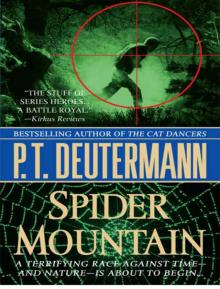 SPIDER MOUNTAIN
SPIDER MOUNTAIN![Cold Frame [retail] Read online](http://i1.bookreadfree.com/i/03/19/cold_frame_retail_preview.jpg) Cold Frame [retail]
Cold Frame [retail] Sweepers
Sweepers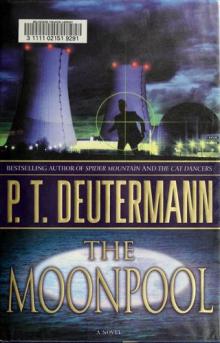 Cam - 03 - The Moonpool
Cam - 03 - The Moonpool Trial by Fire
Trial by Fire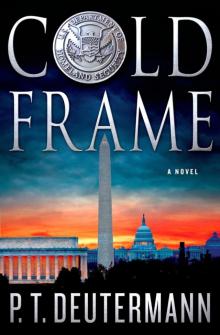 Cold Frame
Cold Frame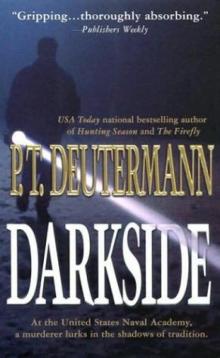 Darkside
Darkside Cam - 04 - Nightwalkers
Cam - 04 - Nightwalkers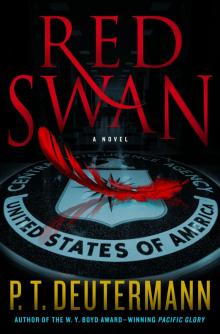 Red Swan
Red Swan The Commodore
The Commodore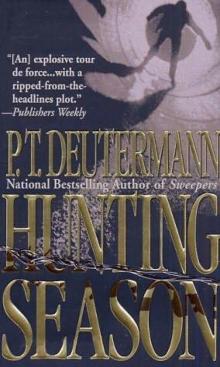 Hunting Season
Hunting Season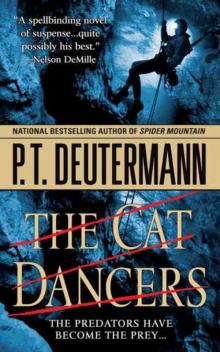 The Cat Dancers
The Cat Dancers Scorpion in the Sea
Scorpion in the Sea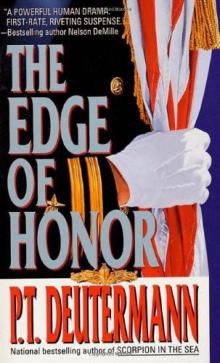 The Edge of Honor
The Edge of Honor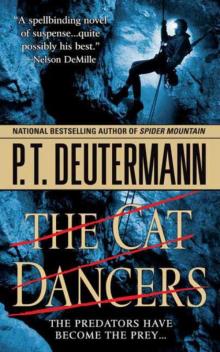 The Cat Dancers cr-1
The Cat Dancers cr-1 The Iceman
The Iceman The Iceman_A Novel
The Iceman_A Novel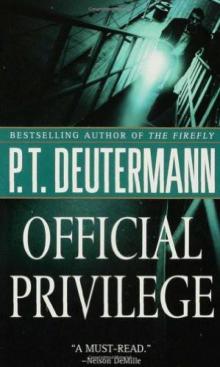 Official Privilege
Official Privilege Sentinels of Fire
Sentinels of Fire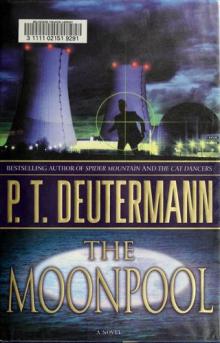 The Moonpool cr-3
The Moonpool cr-3 Nightwalkers cr-4
Nightwalkers cr-4 The Firefly
The Firefly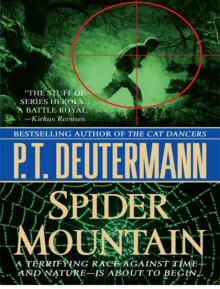 Spider mountain cr-2
Spider mountain cr-2 Pacific Glory
Pacific Glory The Last Man
The Last Man